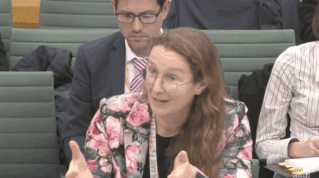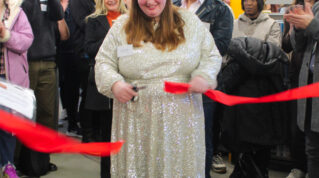Staff can use the term ‘ADHD’ flippantly, but a thorough understanding and compassion for the diagnosis is needed, writes Richard Moody
At 26 years old I was diagnosed with attention deficit hyperactivity disorder. It was a long journey to get there.
Growing up, I knew I wasn’t necessarily ‘normal’. That feeling followed me through my late teens and into adulthood, as I dropped out of university and stumbled into my career in FE.
In 2020 I was in the second year of my CertEd, specialising in SEND. Then the pandemic hit and like everyone, I was suddenly working from home, left to my own devices.
It was impossible. I sat at my computer for hours on end and tried so hard, and nothing happened. I couldn’t work, and I felt lazy and guilty about it. It wasn’t that I was getting distracted by other things, I just couldn’t make my hands move.
This wasn’t a new sensation, but the reality of that feeling every day for weeks at a time forced me to look for answers again. Fast forward to October 2021 and I had one – an ADHD diagnosis.
I sat at my computer for hours and couldn’t work
Nothing changed overnight, but it felt good to have something of an answer. There were still a lot of questions. When I told my manager, she asked: “What reasonable adjustments can we put in place to help you?”. Honestly, I had no idea. I was used to my normal.
I needed something to change, though, because like a lot of new teachers, I was finding my first year tough, and I was struggling with feeling isolated.
It didn’t help to hear people (sometimes colleagues) speaking about ADHD flippantly or in an uninformed way. My condition would be minimised into a stereotype (lazy or hyper) or even used as an adjective (“He’s so ADHD!”). I can’t really blame them because I used to have the same misconceptions.
ADHD isn’t what I thought it was. My image was of hyperactive children bouncing off the walls ̶ naughty, disruptive behaviour.
ADHD is a neurodevelopmental disorder. Hyperactivity and inattentiveness are part of a bigger picture that includes executive dysfunction, emotional dysregulation and impaired social skills. Things that, in their own ways, affect me more than I would have liked to admit before my diagnosis.

It was taking medication that helped me to understand my differences. Medicated, I am at the normal of the people around me, but for me that feels superpowered. It isn’t perfect, but I can do things when I want to. I can focus on one thing at a time.
I understand now, and am learning more and more, that feeling normal is more important than people anticipate. With neurodiversity as a term to apply to myself, I had an identity and community. It wasn’t that I never fitted in, it was that I was judging myself against people who were simply not like me.
When I started to talk to people with the same condition as me, I finally got the validation that it was OK to be me.
We still have a way to go. Across all levels of staff in FE, training is imperative. It should be designed to remove stereotypes and stigma and should be led by medical experts or by people with those conditions.
Organisations should make reasonable adjustments tailored to their staff. For me, that means making sure I have structured routines with clear and distinct deadlines, with advance warnings about any changes as well as regular meetings with my manager.
These things help me to manage at work, but for others, those adjustments could be completely different. However, I think the most important thing for anybody with ADHD is compassion. I don’t expect a free pass on making mistakes, but know that when I am late, or I am reacting badly to a change, these things aren’t always in my control, and I am trying my best.
I am fortunate enough now that I am beginning to understand myself and feel more confident to ask for what I need. With the right training and understanding, organisations should know what I might need and ask me first.
The most important lesson I learnt, however, is that I am not alone.














Your thoughts